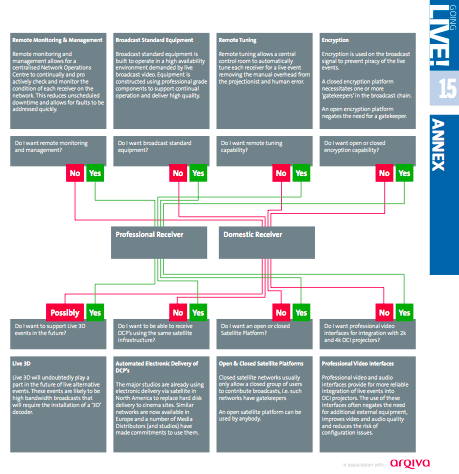Variety is following this issue: Read their full report at:
German exhibs nix 3D World Cup
Operators gives thumbs-down to technology
By ED MEZA—Posted: Thurs., May 27, 2010, 4:00am PT
See also: Collapse in 3D World Cup Broadcast -Variety
THURSDAY, 13 MAY 2010 13:43
This isn’t the first broadcast coming into cinemas. Opera and live concerts have been successful. But, in 2D.
As far as production values, the Sony operation in South Africa is noted for being highly qualified.
So, where is the problem?
One can understand low resolution and interlace effects. When compared to 2K digital cinema, everything (including Blu-ray) is going to suffer in comparison. DCinema 3D is often chastised for its current limits.
Andreas Cruesemann, Cineplex’s head of sales and marketing is quoted to say, “We can’t take money for an experiment. That’s why we said no. We are not saying no to soccer or 3D screenings. We will be very happy when it’s working. We were really disappointed last week because we expected more. If the picture was good of course we’d pay for it.”
What the exhibitors don’t have to pay for is a 2D feed, but the other side is that they can’t charge for it. But exhibitors get more funds from the concessions anyway. If they can pull patrons in on nights that might be empty because of a popular match, would they care if it is 2D? There is no record for this, 2D or 3D.
The market is obvious and should be straight by the Olympics in 2012. The 30 games that were to be broadcast in 3D would have been a solid test, but as is seen from the dismissal of Aruna as distributor just a few weeks before the event, and now a major country’s largest exhibitor groups dissing the quality…it makes for an interesting set of questions.
The Variety article goes into the politics, but without technical details. Since the technical details are in flux, we’ll be careful not to demean anyone’s attempts. As one industry insider is known to say “That’s the great thing about standards…there’s so many of them.”
In this case, we are talking about the insertion of an evolving video ‘standard’ into an evolving cinema ‘standard’. According to the Variety article, people saw a test that was expected to show problems. Perhaps it shouldn’t have had an audience from the a non-technical public.
There are certain challenges that need to be addressed in the transition of a TV signal with equipment that was designed for the highest quality digital cinema signal.
Richard LaBerge, executive VP for tech provider Sensio, told Daily Variety the German exhibs most likely saw a May 5 test of the worldwide network that was never meant for their eyes.
“I don’t know who invited the exhibitors,” said LaBerge. “I would assume it was Aruna.”
Aruna is the Swiss company that obtained the 3D out-of-home rights, only to have FIFA pull them. (Daily Variety, May 20). Whether or not that was a result of the unenthusiastic response to the 3D presentation is not clear.
LaBerge said it was “risky” to show that test, as it was expected to reveal problems with the video. “We did not recommend they show that to exhibitors.”
Exhib chains Cinemaxx and Cinestar have not ruled out carrying the games in 3D but say production values have to be much improved before they sign on.
LaBerge said there will be more screenings for exhibs once the video problems are resolved. The entire project is being done at breakneck speed to make the June 11 deadline.
FIFA, which could not be reached for comment, is partnering with Sensio and using the tech provider’s 3D format to deliver live telecasts via satellite.
Exhibs also have the option to present World Cup matches in 2D as free public screenings.
(David S. Cohen contributed to this report.)
Contact the Variety newsroom at [email protected].





